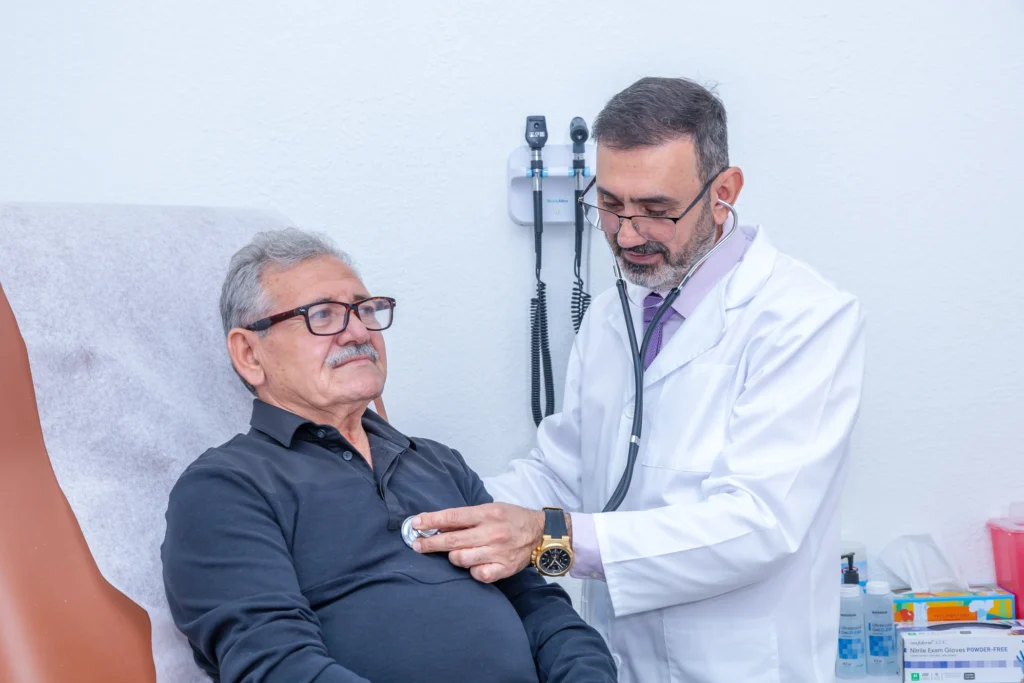Preventive Screenings: Your Checklist for Optimal Health near Louetta Road
Feeling overwhelmed by the sheer amount of health information out there? You’re not alone! It can be tough to know which screenings you really need and when to get them. Skipping or delaying these crucial checkups can lead to missed opportunities for early detection and treatment of potential health issues. Let’s simplify the process and create a personalized checklist for your optimal health journey right here near Louetta Road.
Why are Preventive Screenings Important?
Preventive screenings are proactive measures taken to detect potential health problems before they become serious. They help us catch conditions early when they are often easier to treat. Investing in these screenings is investing in your long-term well-being.

Essential Preventive Screenings by Age and Gender
For Women
- Well-Woman Exam: Including a pelvic exam and Pap smear, depending on age and risk factors. Learn more at our well-woman exam page.
- Mammogram: Recommended starting at age 40 or 50, depending on guidelines and family history.
- Bone Density Screening (DEXA scan): To check for osteoporosis, typically starting at age 65, or earlier if at risk.
- Cervical Cancer Screening: Regular Pap tests or HPV tests are crucial.
- STI Screening: Recommended for sexually active women.
For Men
- Prostate Cancer Screening: Discuss with your doctor starting at age 50 (or earlier if high-risk) about PSA testing and digital rectal exams.
- Testicular Exam: Regular self-exams are recommended.
- Colorectal Cancer Screening: Starting at age 45, options include colonoscopy, stool-based tests, or sigmoidoscopy.
- STI Screening: Recommended for sexually active men.
For Everyone
- Blood Pressure Screening: Regularly, at least every two years, or more often if you have high blood pressure or risk factors. We offer blood pressure checks right here near Louetta Road.
- Cholesterol Screening: Starting at age 20, then every 4-6 years, or more often if at risk. Consider high cholesterol treatment if needed.
- Diabetes Screening: Starting at age 35, or earlier if overweight or have risk factors. Learn more about diabetes care near Klein.
- Colorectal Cancer Screening: Starting at age 45, various options available.
- Lung Cancer Screening: For smokers or former smokers.
- Skin Cancer Screening: Regular self-exams and professional exams, especially if you have risk factors. We also offer skin biopsy services.
- Immunizations: Stay up-to-date on recommended vaccines. Check out our page about immunizations for Spring, TX residents.
Understanding Screening Options
Comparing Colon Cancer Screening Methods
| Screening Method | Frequency | Preparation | Pros | Cons |
|---|---|---|---|---|
| Colonoscopy | Every 10 years | Bowel prep required | Detects and removes polyps | Invasive, requires sedation |
| FIT Test (Fecal Immunochemical Test) | Annually | No prep required | Non-invasive, convenient | May miss some polyps |
| Cologuard | Every 3 years | No prep required | Non-invasive, detects DNA changes | More false positives |
| Flexible Sigmoidoscopy | Every 5 years | Limited bowel prep | Examines lower colon | Doesn’t visualize the entire colon |

Other Important Health Considerations
- Mental Health: Don’t neglect your mental well-being. Talk to your doctor about screening for depression and anxiety. Find mental health support in the Louetta community.
- Weight Management: Maintaining a healthy weight is crucial. Consider our weight loss management programs.
- Smoking Cessation: If you smoke, quitting is one of the best things you can do for your health. We offer smoking cessation resources.
- Annual Physicals: A great way to ensure you stay on top of your health. Review what to expect at your annual physical in Spring, TX.
Frequently Asked Questions (FAQs)
At what age should I start getting mammograms?
The recommended age to start mammograms varies.
Some organizations recommend starting at age 40, while others suggest age 50.
Talk to your doctor to determine what’s best for you based on your risk factors.
How often should I get a Pap smear?
The frequency of Pap smears depends on your age and previous results.
Typically, women aged 21-29 should get a Pap smear every 3 years.
Women aged 30-65 can get a Pap smear every 3 years, an HPV test every 5 years, or a Pap/HPV co-test every 5 years.
What is a PSA test?
A PSA test measures the level of prostate-specific antigen in your blood.
Elevated PSA levels may indicate prostate cancer, but can also be caused by other conditions.
Discuss the benefits and risks of PSA testing with your doctor.
Dr. A Patient Care: Your Partner in Preventive Care
At Dr. A Patient Care, located at 5523 Louetta Rd STE C, Spring, TX 77379, we are committed to providing comprehensive and personalized preventive care services.
We understand that every patient is unique, and we tailor our screening recommendations to your individual needs and risk factors. We offer a range of services from acute illness visits to chronic disease management and more.
Considering your options? We can help! Call us at 346-550-8220 or book a consultation to get started.
Taking charge of your health through regular preventive screenings is one of the most important steps you can take. By following this checklist and working with our team at Dr. A Patient Care, you can optimize your health and well-being for years to come near Louetta Road.


